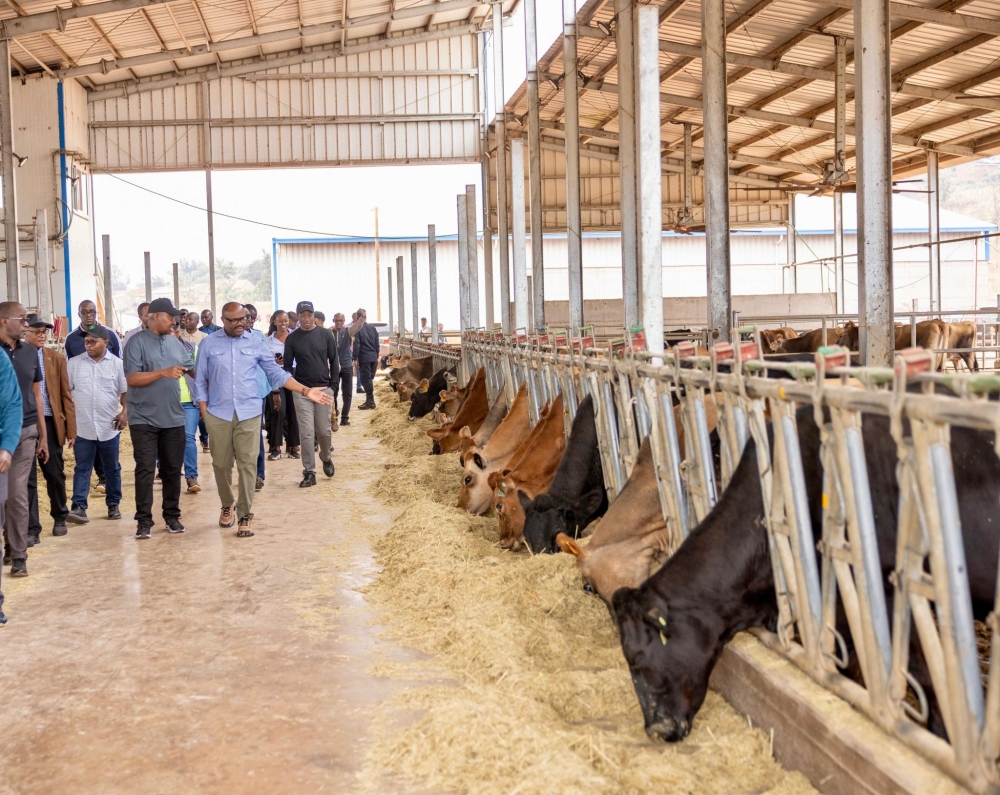If two people meet in a friendly way, the ordinary thing they do is greet and introduce themselves to each other. If they become acquaintances and want to work together, then they have to get to know each other more.


If two people meet in a friendly way, the ordinary thing they do is greet and introduce themselves to each other.If they become acquaintances and want to work together, then they have to get to know each other more.They have to know the temperament, work ethic and the general likes and dislikes of each of them. It gets more complicated when the number increases to five, there are more permutations then.Countries are like people; after all, they are but collections of people. They have their peculiar habits and characteristics. The EAC is no exception. There are things in each member state that might not add up in another.There is need to address this especially now that the neighborhood that is the East Africa Community is abuzz with activities and counter activities.There are summits and speeches and public differences! Some people are very happy with themselves and some are unhappy with others. It is only natural, you cannot please everybody. Yet you should strive not to displease anybody.A closer look pins everything down to integration. Everyone wants East Africa to integrate fast but some countries think others are moving too fast and leaving the former behind, or to use their language; isolating them.This brings to mind two questions; what is integration? And how fast should it be achieved?Integration or amalgamation/combination means different things in different subject areas. But it always has an aspect of bringing together. In the East African context; it is bringing together the peoples of our five different countries to appreciate and work together socially, economically and politically.At its best it means redrawing the borders and at the very least reducing the separating effects of the same.How are we doing in integration matters? One of the most effective ways of determining this is in looking at cultural traits, (especially culinary and mundane things like dressing habits of the citizens).When you find, for example, a restaurant that serves Tanzanian, Kenyan or Ugandan cuisine in Rwanda; you can be sure that there is a sizable number of Tanzanians, Kenyans or Ugandans in the same area, and vice versa. They are always the primary consumers being homesick and all.The secondary group comprises the local gastronomes. Their coming to these ‘foreign’ restaurants demystifies and ‘localises’ the same. ‘Samaki wa kupaka’, ‘Nyama choma and sukuma wiki’ or ‘matooke luwoombo’ becomes part of a Kigalian’s diet. This integrates us with the Tanzanians, Kenyans and Ugandans. Our ‘brochette’ also becomes part of their diet.Maasai beaded sandals have fast become a ‘must have’ for every lady’s weekend attire in East Africa. Someone should take Imishanana and uduseke out to our sister countries. A lot of us still do the Nigerian ‘agbada’ when they want to show and feel their ‘Africanness’. We need not to just do this when there is the ‘Khanga’, ‘Gomesi’, ‘Maasai shuka’ and, of course, imishanana, among others to pick from.To have socio-cultural integration, this process should be encouraged. There are already art and dance festivals that are doing rounds.There are school and military games and exercises that we share. But we need to get into more of the everyday things like food and clothing.Fortunately, our foods are typically pocket friendly and healthier that a lot of the other stuff we take. More importantly, the ‘culinary and fashion tourism’ is one of the most effective ways of demystifying the EAC to us the ordinary folks.So entrepreneurs out there, it would be nice to have more Burundian, Ugandan, Kenyan and Tanzania restaurants, fashion boutiques, etc in Kigali; similarly, we should have more of Rwandan food and art, imishanana and other cultural stuff in the other partner states. It will be good business and better integration medium than the politicians’ initiatives.That is what a stronger East Africa needs; fusion of business and culture in a simple everyday setting. This works better and indeed strengthens the political front. As it is, to the ordinary citizens of one country, their neighbours could as well have come from the moon or Europe.Will the real East African entrepreneurs please stand up?The writer is an entrepreneurship development consultant based in Kigali




